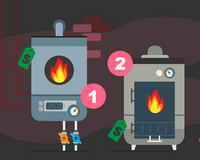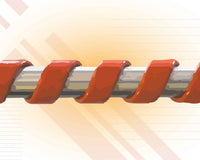This article originally appeared on SFGate by Meribeth Phipps.
With careful planning, upgrading a manufactured home can add value.
Manufactured homes tend to depreciate after they're purchased, as opposed to traditional homes which, for the most part, gain in value over long periods of time. Additionally, the older a manufactured home is, the more difficult it can be to add value to it. There are certain things owners can do to increase their manufactured home's marketability if they wish to sell.
Energy-Efficient Upgrades
Installing energy-efficient upgrades to a manufactured home not only will provide immediate savings but also add long-term value. According to the U.S. Department of Energy, upgrades that can reduce energy costs include putting in energy-efficient windows and doors, adding more insulation, applying weatherstripping and caulk, and installing insulated skirting. It's important to note that manufactured homes are subject to the Manufactured Home Construction and Safety Standards, or “HUD Code,” rather than local building codes.
Inexpensive Upgrades
Because the total price of a manufactured home is relatively low compared to traditional housing options, upgrades that add value should be inexpensive enough to justify the cost. Major renovations, such as adding square footage or moving walls, may be too expensive to net a profitable return when it comes time to sell. Cost-effective fixes, such as painting the interior and exterior, updating plumbing and lighting fixtures, and adding new cabinets and new appliances, are budget-friendly fixes that can make a manufactured home more attractive to buyers.
Consistent Maintenence
One of the best ways to either retain or add value to a manufactured home is to maintain it and stay on top of needed repairs. Appraisers and real estate agents that valuate properties, including manufactured homes, factor in the quality of the property when figuring its value. A home that is in tip-top shape generally can command a higher asking price. Additionally, potential buyers tend to prefer a move-in ready home.
Placing on Real Property
Manufactured homes on rented lots are more difficult to sell because of limited financing options. Because of this, they can be priced up to 50 percent less than manufactured homes located on land owned by the homeowner. Although moving a home can be costly, the value attained can be substantial by relocating the home, even after moving costs are deducted from the final appraised value. Consult with a real estate professional to determine if such a move will work in your situation.






